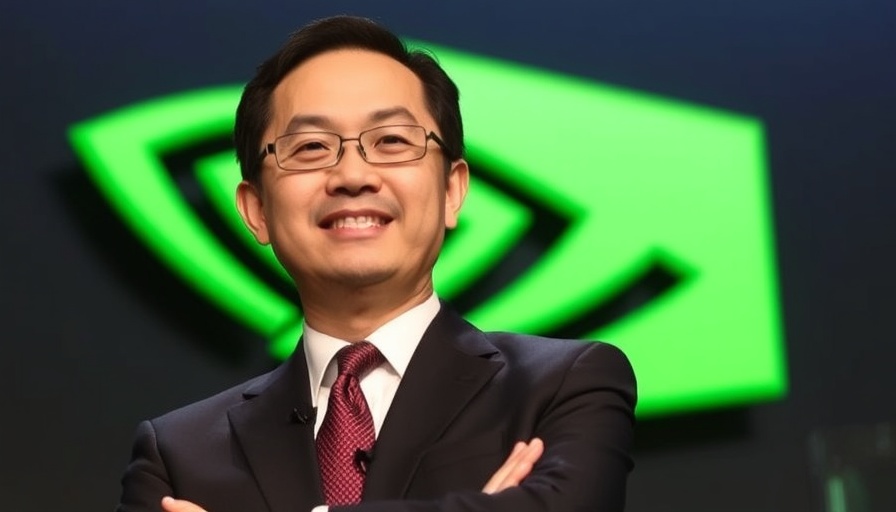
Why Huang Jen Hsun's Stock Sale Matters
Huang Jen Hsun, the CEO of semiconductor titan Nvidia, recently made headlines by selling $41.3 million worth of NVDA stock in mid-October. This significant transaction has sparked interest amid Nvidia's impressive financial growth, boasting a market cap of $4.35 trillion and a remarkable 71.55% increase in revenue over the last twelve months. Understanding the implications of a high-profile insider sale is crucial for investors, particularly as Nvidia continues to thrive in the evolving AI landscape.
Analyzing the Sale Under Rule 10b5-1
The stock sales were executed under a pre-arranged Rule 10b5-1 trading plan, a strategy that allows company executives to sell shares at predetermined times to avoid the perception of insider trading. This framework helps restore trust in the market by ensuring that executives can make financial decisions without leading to allegations of misconduct or market manipulation. Such arrangements are common among top executives, particularly when managing substantial stock holdings.
Market Context: Nvidia's Recent Performance
Despite Huang's stock sale, Nvidia's performance remains robust, with NVDA shares enjoying a remarkable 60.3% gain over the past six months. This performance is compounded by recent agreements, notably Nvidia's collaboration with Microsoft on substantial AI infrastructure projects, including the distribution of 200,000 GPUs through Nscale's contract. This partnership not only validates Nvidia's pivotal role in AI technology but also signifies the escalating demand for efficient AI hardware.
Reactions from Analysts and Investors
In light of Huang’s stock disposal, investment analysts maintain a mostly positive outlook toward Nvidia. Piper Sandler, for example, reiterated its Overweight rating, citing strong demand for Nvidia’s products that currently exceeds manufacturing capacity. Notably, ongoing advancements in AI technologies underscore Nvidia as a key player positioned to lead in this multifaceted technological landscape.
Strategies for Engaging with the Stock Market
As an investor or AI enthusiast, Huang’s decisive actions may prompt crucial considerations for portfolio management. High-profile insider sales can be potential red flags, but understanding the motivations and broader context behind such decisions is essential. Investors should assess factors including overall market conditions, company earnings reports, and ongoing trends in AI and tech sectors. Making informed decisions rooted in comprehensive data analysis will pave the way for strategic investments amidst the constantly shifting market dynamics.
Future Trends and Insights
Looking ahead, Nvidia’s continued trajectory in AI development and partnerships places it at the forefront of innovation. With the tech industry rapidly transitioning toward AI-centric functionalities, Nvidia’s ceaseless push for technological advancements will likely yield significant returns within the stock market. This evolution calls for attentive observation from investors who aim to capitalize on burgeoning opportunities within the AI sector.
Given the potential for further growth, both in AI and in revenue, understanding these complex dynamics is key for investors prioritizing informed decision-making.
 Add Row
Add Row  Add
Add 




Write A Comment